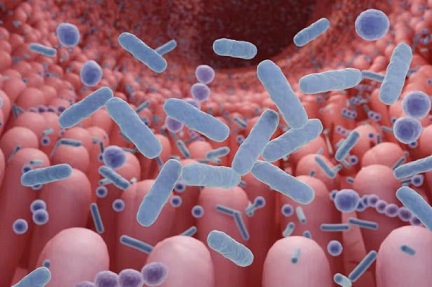New discovery from Spain reveals how an enzyme from the gut microbiota of babies neutralizes SARS-CoV-2
Nikhil Prasad Fact checked by:Thailand Medical News Team Aug 30, 2024 1 year, 3 months, 4 weeks, 1 day, 15 hours, 44 minutes ago
Medical News: A groundbreaking study from researchers at the Instituto de Agroquímica y Tecnología de Alimentos (IATA-CSIC) and the Universidad de Valencia, Spain, has uncovered a new defense mechanism against SARS-CoV-2, the virus responsible for COVID-19. The study focuses on an enzyme, Endo-β-N-acetylglucosaminidase (EndoE), derived from the gut bacterium Enterococcus faecalis found in infants. This
Medical News report reveals how this enzyme neutralizes the virus by interacting with its spike protein, potentially opening new avenues for antiviral treatments.
 New discovery from Spain reveals how an enzyme from the gut microbiota of
New discovery from Spain reveals how an enzyme from the gut microbiota of
babies neutralizes SARS-CoV-2
The Role of EndoE in Neutralizing SARS-CoV-2
SARS-CoV-2, like many viruses, relies heavily on its spike protein to attach to and enter host cells. This spike protein is densely covered with sugar molecules known as glycans, which help shield the virus from the immune system. The study shows that EndoE, an enzyme produced by Enterococcus faecalis from infant guts, can effectively deglycosylate (remove glycans from) the spike protein of SARS-CoV-2. This deglycosylation impairs the virus's ability to bind to human cells, thereby neutralizing its infectivity.
Experimentation and Key Findings
The researchers cloned and purified the EndoE enzyme from an Enterococcus faecalis strain isolated in their laboratory. They discovered that both the wild-type EndoE and a catalytically inactive mutant of EndoE could neutralize the SARS-CoV-2 virus in a controlled environment. The wild-type enzyme had an IC50 value of 81.26 ± 8.42 nM, while the mutant exhibited a slightly more potent neutralizing ability with an IC50 value of 63.15 ± 5.06 nM.
Interestingly, neither form of EndoE was toxic to human cells, even at high concentrations. This is in stark contrast to another compound tested in the study, the plant lectin Concanavalin A, which, despite being a potent antiviral agent with an IC50 of 40.89 ± 24.04 nM, showed significant toxicity at much lower concentrations.
The study further explored how EndoE interacts with the spike protein. Both the wild-type and mutant forms of EndoE were found to bind to the spike protein, suggesting that their antiviral effect might be due to this binding rather than their enzymatic activity alone.
The Potential of EndoE in Antiviral Strategies
The findings from this study are significant because they suggest that EndoE could be used as part of an antiviral strategy against COVID-19. Unlike other antiviral agents that target the viral RNA or protein synthesis, EndoE targets the glycan shield of the virus, a feature that is less likely to mutate over time. This makes it a promising candidate for developing therapies that could remain effective against multiple variants of the virus.
Moreover, the non-toxic nature of EndoE
at therapeutic doses adds to its appeal as a potential treatment. The study suggests that further research could explore how this enzyme could be delivered to infected tissues, particularly in the respiratory and gastrointestinal tracts, where SARS-CoV-2 is known to replicate.
Expanding the Understanding of Gut Microbiota's Role
The study also sheds light on the broader role of gut microbiota in human health and disease. The gut is home to trillions of microbes, many of which produce enzymes that can influence the immune response and protect against pathogens. This research highlights how a bacterial enzyme from the gut can have far-reaching effects on systemic infections like COVID-19.
The study opens up new questions about how other enzymes produced by gut bacteria might influence the course of viral infections. It also suggests that probiotics, which introduce beneficial bacteria into the gut, could be tailored to enhance the production of such protective enzymes.
Conclusion
The discovery of EndoE’s ability to neutralize SARS-CoV-2 represents a significant advancement in the search for new antiviral therapies. By targeting the virus's glycan shield, EndoE offers a novel approach that could complement existing treatments and vaccines. Further research is needed to fully understand how this enzyme can be harnessed in clinical settings, but the potential is clear.
The study findings were published on a preprint server that is currently being peer reviewed.
https://www.researchsquare.com/article/rs-4807732/v1
For the latest COVID-19 News, keep on logging to Thailand
Medical News.
Read Also:
https://www.thailandmedical.news/news/brazilian-study-review-finds-that-probiotic-lactobacilli-has-therapeutic-potential-in-treating-covid-19
https://www.thailandmedical.news/news/covid-19-news-indonesian-researchers-uncover-biosurfactant-potential-and-antiviral-activity-of-multistrain-probiotics-against-sars-cov-2
